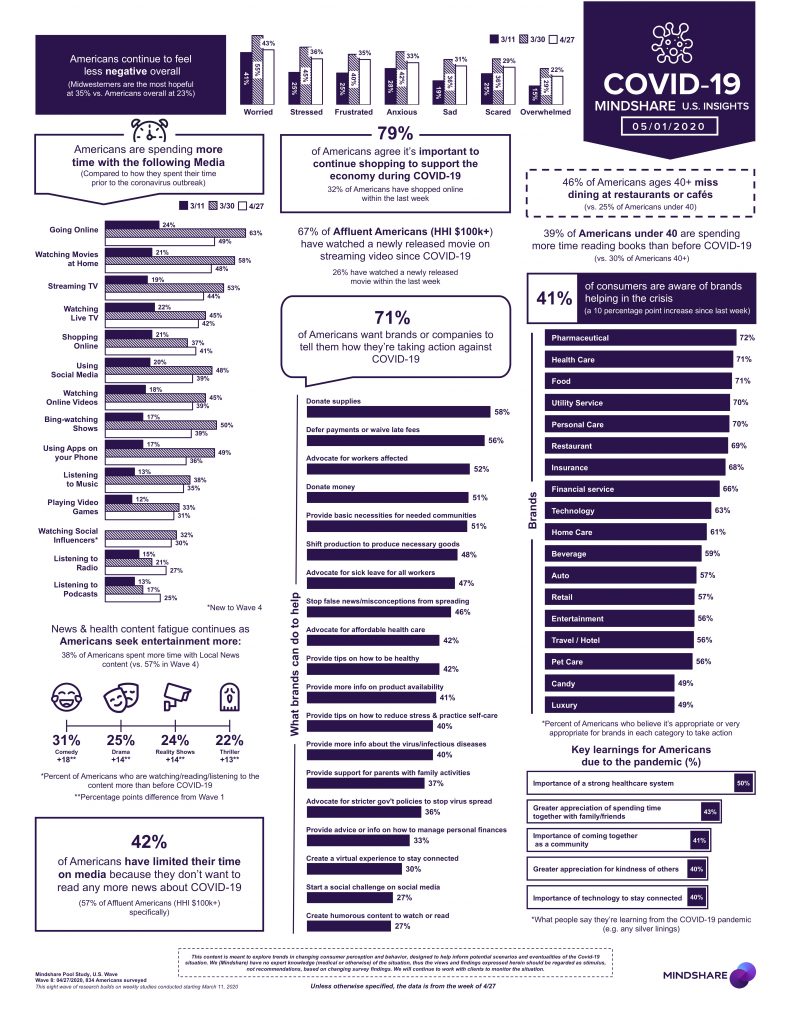5th May 2020
Wave 8: Americans likely to change behavior after pandemic
Now in week 8 (also known as Wave 8, W/C May 1), Mindshare's POOL survey continues to examines how COVID-19 is affecting Americans' lives and the impact on media consumption and behaviors.
Wave 8 has four key insights:
- Looking back over the 8 waves, a few distinct stages have emerged: starting with panic then prepare (waves 1-3), next quarantine becomes routine (wave 3-6), and now exhaustion and fatigue is settling in (waves 7-8). Overall negativity continues to decline, but more Americans are feeling frustrated, bored, and lonely.
- When the pandemic was announced, Americans were consuming more local news (Wave 1-4), now as the outbreak has continued and routines have shifted, Americans are spending more time with distractions, like reality TV or comedy (Wave 4-8). Americans still expect brands to help and awareness of brands helping grew back, possibly due to commercials and more ads mentioning brand actions.
- As life continues to be upended by COVID-19, Americans are learning the importance of a strong healthcare system and an appreciation of the community coming together, in addition to a gratefulness for the company of friends/family. Behaviors related to hygiene, health, environment and saving money will likely remain.
- After restrictions are lifted, Americans report they would immediately spend time in person with family/friends. Offices and hair salon/barbershops would likely see the most foot traffic. However, many activities are still uncertain. Americans are most uncertain about traveling and spending significantly.
More takeaways and insights from MediaPost, examining how Americans will likely spend less time with media after the pandemic:
Excerpt: Two months into the COVID-19 pandemic more Americans say one of the behavioral change they plan to make after the crisis is over is to spend less time with media. That's one of the findings from the eighth weekly tracking study from Mindshare.
Far more Americans (50%) told Mindshare they are likely/very likely to spend less time with media than those (41%) who said they are likely to spend more time with media following the pandemic.
While it is self-reported and just a projection of their future intent, the finding could be significant for the advertising and media industry at least in terms of what it says about the sentiment Americans have about their overall media behavior pre- and post-pandemic.
Mindshare previously detected some media burnout, as well as some perceived active avoidance of media during the pandemic, during an earlier wave conducted three weeks ago. In that study, conducted April 6, Mindshare found 38% of Americans said they already were limiting the time they spend with media explicitly to avoid seeing news about the coronavirus.
For more insights, read the full piece in MediaPost.
